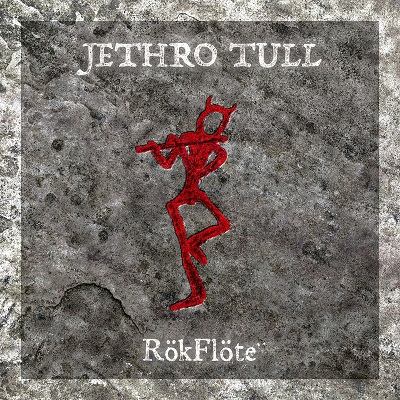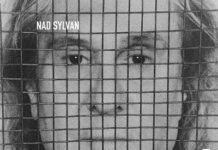Two Jethro Tull albums in back-to-back years? Yes, for the first time since 1980, Tull has followed up 2022’s The Zealot Gene a year later with the exotically titled RökFlöte. You could argue the band is now essentially Ian Anderson, as long-time lead guitarist Martin Barre is no longer a member. However, given that eccentric genius Anderson has been the lone founding member, leader, songwriter, singer, acoustic guitarist and flautist of Tull since their inception in 1967, it’s always been that way for the most part.
Whatever one may think of hard and progressive rockers Jethro Tull and their wild-eyed, one-legged, madman of a flute player, you have to admire their eclecticism: blues, jazz, hard, progressive, folk, electronic, and classical rock. Some critics consider their sound too elaborate, their lyrics too intellectual, not “rock ‘n’ roll” enough. Yeah, well, you know that’s just like, uh, their opinion, man. Not everyone digs punk rock, the antithesis of progressive rock, but it hardly matters. Objectively, the Ramones are among the greats.
In 2022, Tull issued The Zealot Gene — their first recording since 2003 — an expectedly musically complex, lyrically dense work covering favorite themes like religion and politics. The eponymous track features Anderson at his perceptive, sardonic best. RökFlöte (“Rock Flute”) is another concept album, which is familiar territory for Jethro Tull (Aqualung, Thick As a Brick, A Passion Play). It largely concerns “Ragnarök,” an epic in Norse mythology involving a magnificent conflict, the death of leading gods like Odin and Thor, natural catastrophes, and the drowning of the Earth and its subsequent rebirth. Heavy stuff! And very much in accordance with Anderson’s sensibilities.
There are 12 tracks and a bonus one. Like all good art, they are open to interpretation. “Voluspo” is reminiscent of Cate Blanchett in The Lord of the Rings, opening with a woman speaking some form of Elvish (Old Norse, actually). Then the signature flute breaks in and you know you’re listening to a Jethro Tull song. The driving electric guitar makes its first appearance and Anderson, rather than singing, delivers the translated lines in spoken word. The content, a creation story, is akin to something J.R.R. Tolkien might have dreamt up for The Silmarillion (Tolkien was heavily influenced by Norse folklore, which in turn was at least partly influenced by the Old Testament).
“Ginnungagap” is classic Tull interplay of flute and electric guitar. Enter the Norse versions of Adam, Eve, Cain, and Able. “Allfather” gets its wings from solid bass work. Mankind’s relationship to God, the rules governing life, and the limits of knowledge. On “The Feathered Consort,” the instruments coalesce wonderfully, musically perhaps the strongest track on the record. An ode to women as the captivators of men and providers of life.
“Hammer on Hammer” rocks hard with fine guitar and drum work. The sound evokes the tumult of battle and its aftermath. Ragnarök is alluded to. “Wolf Unchained” is another hard rocker as bass, guitar, drums, and flute are all well-represented. In the post-apocalyptic world, the beasts reign, residing uneasily with men.
On “The Perfect One,” acoustic and electric guitar share the spotlight. A new God emerges, as does the Devil, already a foreshadowing of strife. “Trickster (And the Mistletoe)” is yet another hard rocker where all the instruments shine. The Devil sows discord among men. For a little light music, there’s “Cornucopia” with its exquisite acoustic guitar and piano work. God grants sustenance to farmers, desiring praise in return.
“The Navigators” is probably the most unusual song musically. This one is all over the place, but in a good way. The sound elicits the chaos of the sea as men take to it to pillage and plunder in God’s name. “Guardian’s Watch” is similar to “Hammer on Hammer.” Another final battle! The point presumably being that human nature is immutable and thus history repeats itself, over and over again until the end of humanity or the Earth, whichever comes first. Ragnarök is mentioned a second time, Merlin gets a nod, as does…Mae West (?).
“Ithavoll” ends the album basically as it begun with a woman speaking in Old Norse, but now over music, while Anderson again translates but sings rather than speaks the lines:
Now do I see the earth anew
Rise all green from the waves again;
The cataracts fall and the eagle flies,
And catches fish beneath the cliffs.
The gods in Ithavoll meet together,
In wondrous beauty once again
Shall golden tables stand mid the grass
Which the gods had owned in the days of old.
Closing on an optimistic note, maybe we won’t mess it up this time around? Eh, maybe not. There is much here to satisfy Tull fans and for the uninitiated, an opportunity to broaden your rock ‘n’ roll horizons. The intricate compositions: flute, acoustic guitar, mandolin, and piano, keyboard and Hammond organ juxtaposed with the searing electric guitar, forceful bass, and hard-hitting percussion equals superior medieval folk and hard rock, their specialty.
The poetic, opaque lyrics: recall a time and place remote yet familiar, of something larger than ourselves, a reminder that we are only quite little fellows in a wide world after all. Overall, RökFlöte is a worthy effort and a welcome addition to Jethro Tull’s extensive discography.
~ David Barwinski




















